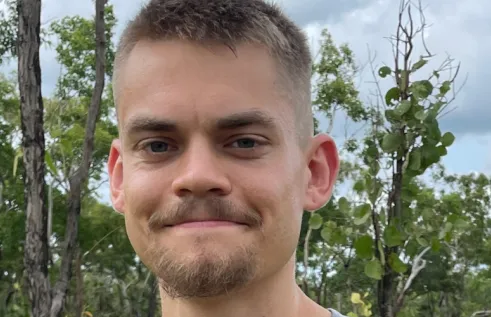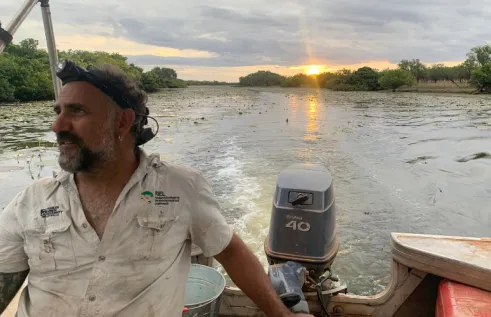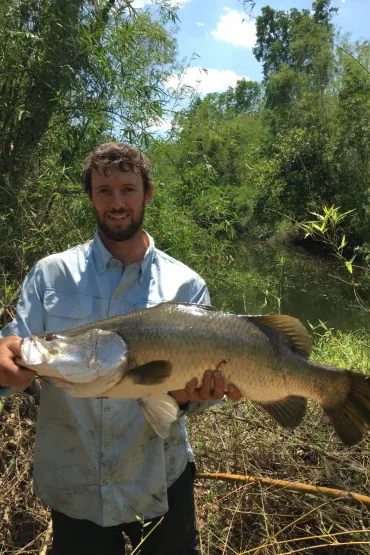RIEL seminar series
Fish and floodplains: drivers of barramundi migration in the Top End
| Presenter | Dr Brien Roberts | |
|---|---|---|
| Date/Time |
to
|
|
| Contact person | E: riel.outreach@cdu.edu.au | |
| Location | CDU Casuarina Campus Yellow 1.1.39 and online | |
| Open to | Public | |
Migration is a fundamental aspect of the lifecycle of many animals and enables individuals to exploit habitats and resources that are geographically separated from breeding sites. Movement patterns are often highly variable among individuals, which may have profound implications for the productivity and resilience of populations and the ecosystem services (e.g., fisheries) they provide. Diadromous fishes, which undergo migrations between marine and freshwater habitats, are exemplars of such behavioural flexibility, which makes them ideal candidates to investigate the mechanisms that underpin migration. My PhD research uses barramundi as a model species to explore the causes and consequences of variable migratory behaviour within populations. Overall, my findings underscore the importance of productive freshwater habitats for barramundi populations and highlight the complexity of trade-offs between life history characteristics and individual fitness. I argue that hydrological variability, which characterises northern Australian rivers, plays a key role in enhancing the productivity of important commercial, recreational and subsistence fisheries. My research outlines the threats to tropical riverine and coastal fisheries imposed by increasing demand for freshwater resources, emphasising the need to incorporate the preservation of life history diversity into the goals of sustainable development.
Brien Roberts is a recent PhD graduate with RIEL at Charles Darwin University. He has a keen and lifelong interest in aquatic biology, and will be in part presenting his thesis, titled ‘Drivers of catadromous migration in barramundi in the wet/dry tropics of northern Australia’. He is currently working as an aquaculture scientist with NT Fisheries.
Related Events

Applying a Gene Knockout Approach to Cane Toad Management and Research
Alex Funk, a PhD candidate at Macquarie University, is developing a CRISPR-based gene knockout method to control invasive cane toads in Australia by exploiting their cannibalistic tadpole behavior. His research combines herpetology, invasion biology, and conservation, building on his previous work studying feral pig impacts on salamanders.
Read more about Applying a Gene Knockout Approach to Cane Toad Management and Research
STATE OF THE DIS-UNION: Media Literacy in the age of AI
The CDU Library is hosting a free panel discussion featuring Northern Territory journalists who will discuss media literacy, truth, and storytelling in the AI era. Attendees can learn how AI is transforming media, ask questions, and improve their understanding of navigating information in today's landscape.
Read more about STATE OF THE DIS-UNION: Media Literacy in the age of AI
Trophic dynamics of free-flowing tropical rivers
Colton Perna's PhD research explores how river flows and flooding shape freshwater fish communities in tropical rivers, using fatty acids to track how hydrology influences food webs and nutritional pathways. His findings highlight the critical importance of river flow and floodplain connectivity in sustaining productive aquatic ecosystems.
Read more about Trophic dynamics of free-flowing tropical rivers
